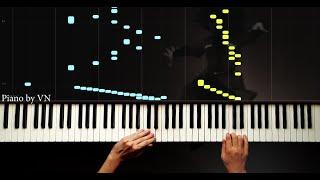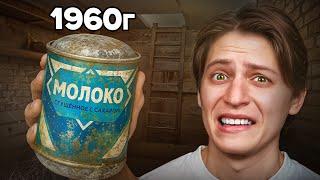
5 Ways France & the U.S. use numbers differently (bet you don't know all 5!)
Комментарии:

The numbers 70,80,90 in french are the rest of the vigesimal system (the base being 20 instead of 10). But in french speaking Belgium and Switzerland they say septante (70), octante (80), and nonante (90), which is easier and shorter.
Ответить
Wow, I had no idea that in the US floors were counted differently.
Ответить
Mathematics IS universal among scientists, mathematicians, architects, engineers etc (thank the stars!) or such things would be in chaos. It takes schools and governments to get it wrong. All these "new" methods like BODMAS etc being taught in schools are as wrong as the ridiculous "simplified" learning spelling experiments attempted in schools with disastrous results around the 1960s-70s.
Ответить
Another difference is that in French we do not count in hundreds, except for years in dates. 1600 is thousand six hundred, mille six-cents. It can only be sixteen hundred , seize cents, when speaking about the year 1600 AD. BTW, 1601 is the beginning of the seventeenth century, le XVIIe siècle. Centuries are always written in roman numbers.
Ответить
I thought that peculiar French way of saying numbers over 59 had been reformed some time ago?
Ответить
quatre-vingts is a remain of an ancient gaulish vigesimal system (base 20). 60 was once called trois-vingts 3x20, and 120 six-vingts.
Ответить
You are right that the Belgians do not go all the way to logic since they still say quatre-vingt but the French speaking Swiss do : they say octante
Ответить
Let's be honest, I have heard English people complaining about French numbers all the time. Now let's speak about the difference between fourteen and forty, sixteen and sixty which are basically a nightmare for French speakers. We simply don't hear the difference most of the time, because the only difference is were the stress is put on the first or second syllable and the rest is simply mumbled out... For the whole list of these unintelligible numbers, we have: thirteen/thirty fourteen/forty fifteen/fifty sixteen/sixty seventeen/seventy eighteen/eighty and nineteen/nighty... An absolute nightmare to hear the difference... So please give us a break with soixante-dix and quatre-vingt...
Ответить
Hi there!
🤣😅 Yes, when one takes a step back quatre-vingt, quatre-vingt dix, soixante-dix .... Why and what the heck?!
However we are totally used to that.
To be honest I think it is very ... strange , weird, odd... whatever.
It almost does not make sense
Does the concept of floor is the same in the UK?

About the soixante-dix issue, we French often think of it as some strange-frenchy-thing, until we discover that some other european language have similar and sometimes even worse systems. Our Belgian and Swiss neighbours use a better way to count, even though most French makes fun of it.
Ответить
Lol how sad French kids can’t tell time on a mechanical clock. I can tell time on a mechanical clock. Il est trois heures de matin. Il est vingt-trois heures vingt-neuf ce soir.
Ответить
Does dizaine = “decade?” I wasn’t sure exactly from the video.
Ответить
15 jours means a fortnight, although it actually means 14 days.
There also is a huitaine for eight items, which is mostly used to count days. Please get back to me within a week would translate into Veuillez répondre sous huitaine. Here again huitaine means 7 days, not 8.
2 huitaines make a quinzaine. 2x8=15=14 days.

I have always counted the French way! Grew up in Ohio and Missouri. Guess I am just weird.
Ответить
Quoi? les montres ont des mains a la place des aiguilles aux Etats-Unis! Mais je savais pas.
Ответить
Another difference is how the French and the American write some digits, namely 1 and 7.
Ответить
And those are just the beginning. Commas and points inversed for decimals and separators. Numbers with decimals are pronounced differently. 1.36 is pronounced one comma thirty-six instead of 1 point three six.
Counting by twenties is common. Schoolwork is mostly marked out of 20, 20s used in counting only in France, not Belgium etc.
This is more NZ than US. In NZ construction distances are always in mm or m. No need for units. In France centimeters are often used. So '1 meter 20' may be 1200 mm or 1020 mm. So French tape measures are different
I was not aware of the thumb-as-1 idea for countinng on hands.
Then clothing and shoe sizes......and date formats

Zip codes and train numbers! In the U.S., you say each digit individually (train number 8-6-4-2); in France, they treat it as an entire number (train number eight thousand six hundred forty-two). It's really stressful at a busy train station when they're making announcements. I also get momentarily panicked when they ask for my zip code.
Ответить
Probably worth mentioning that, for the most part, phone numbers are separated into pairs of digits so, to use a British example, 0345 would be zero-three-four-five (or, more usually the letter 'O' for the zero), in French it would be 'zero-three, forty-five'. This, as you say, can get very confusing when someone's number contains seventies, eighties and nineties.
Ответить
Always enjoyable. The hand counting and floors of buildings are common across Europe, I believe (they certainly were in Germany when we lived there and I've seen them elsewhere). The 70-80-90, though - that's pure France.
Ответить
Bonjour Diane. My parents visited me in France and they are anglophones-only, so when we went up to the counter to order I told the lady in French, "Bonjour Madame. Trois sandwiches au jambon et beurre, s'il vous plaît" and I held up three American fingers, my index, my middle, and my ring fingers like an American because I had just been speaking in English to my parents. They lady behind the counter asked me, << Combien de sandwiches? >> I realized my gaffe and held up the French hand-sign for 3: my thumb, my index, and my middle finger. She smiled and thanked me. (Speaking of cross-cultural gesture gaffes, I used to give the "Ok sign" 👌🏻 to my French students and when I told them "Ok" or "That's fine." They just looked at me in confusion until a French English teacher clued me in and told me in French that that hand gesture means << Zéro. C'est nul" in French. I quickly switched to a thumbs up 👍🏻 to my students. 😲🫢)
Ответить
I think you overgeneralized. Much what you said about France is common all over Europe. 70 to 99 is pedantic in France only. Showing off by the aristocrats that they were good in Maths. In Switzerland, we never had an aristocracy, so we simply kept septante, huitante, nonante. More or less the same in Belgium.
Ответить
Hello! The use of the nouns "soixante-dix", " quatre-vingts" and " quatre-vingt-dix" in France, instead of "septante", "huitante" and "nonante" in other French-speaking countries, originating from an ancient Gallic influence with a base 20 (vigesimal) numbering system. This system is preserved in France, even if regions such as Belgium, Switzerland and parts of Canada have adopted decimal forms under the influence of Latin and local languages. The Académie française then ratified these usages specific to French in France, so that the other forms remain correct and common in other French regions.
Ответить
We were stumped in a UK Airport: -1 for a floor in an elevator!!! Otherwise, I'm used to the rest being Canadian and an army brat.
Ответить
Hi, Diane. I knew all of those, but what confounds me is "How far is a block"???? When I'm reading books by US authors, and they say, "It's a couple of blocks away." it means absolutely nothing to me! I have googled it but it seems that it varies from city to city, and a block only means a distance of eg two apartment blocks - but their width varies in size.... and how does it work in a street of houses?
🤔🤔🤔🤔🤔

I would argue that the 24 hour clock and military time are not the same, unless you are in the UK, and a few other places in the same time zone, during winter.
You can have a 24 hour clock for each time zone, but Military time is Zulu time, which is GMT or UTC. So that all participants, the grunts on the ground, the B2's from Whiteman and the ships in the ocean all use the same time to start the attack.

Muricuns elected their great dictator, what a shame .
Ответить
I do agree that quatre-vingt-dix is an absurdity. In some french schools (at least it was the case when I was a child) we learn to count with "septante", "octante" and "nonante" and only after, when we are OK with that, we learn the medieval tricky way ! When you are a grown up you don't even think about it, it becomes natural but why not just accept both : the simpliest will in the end. That is the swiss/belgic way of course !
Ответить
... and 2 weeks are 2x7=15 days ! So easy... 😜
Ответить
The 24 h clock started with digital clocks and seems much more used nowadays from when I was born, 40 years ago. We then used to say Huit heures du Soir for 8pm. Same, we used to say Quatre heures moins le quart de l'après midi for 3,45 pm (4 o'clock minus a quarter).
Ответить
Thought I'd also discuss the UK, and hope people do the same for other countries! :D
In the UK, I learned the American way but have also seen pinkie-ring-middle-index-thumb and thumb-index-middle-ring-pinkie probably even more than the way I've been taught.
Being native British, I've always found this interesting.
Also, the floor system is the same as in France --- which could be seen as confusing, but in most cases it actually makes sense because (our) floor 1 is the start of the main part of the building (e.g. where the rooms of a hotel might start). The lobby is typically the floor people go into to sign in or whatever then be able to access the main/"actual" building.
As for time, we write in both 12- and 24-hour, but usually 24-hour in formal schedules. However, we only typically speak in 12-hour. So we're taught from an early age how to convert between both methods of time.

Even better, there is a word in French for twelve dozen. It's called "une grosse". It's especially used for counting oysters or snails
Ответить
The way we French count 70 and up like this is because of our Gaulish ancestors who counted with their fingers AND toes. Oh and btw, "octante" does exist but in Switzerland (if I'm not mistaken).
Ответить
Wow, kids nowadays can't tell time on a dial clock! Yikes!!!
Don't schools have clocks in all classrooms!?

I had to take French in high school, community college, and as part of my BA and I can still only count up to thirty in French (Trente). It was very difficult for me to learn 😅
Ответить
Bonjour Diane: Je suis né et maintenant j'habite à New York et ... I count "1" with my pointer finger; "2" with the "V- sign;" but "3" I''ve always used the pinky, ring-finger, and middle finger.
Ответить
and let us not forget that a 'clock' is in fact a bell not a device for measuring time which somehow stole the name but merely one to mark it's passing
Ответить
The floor numbering system is the same in the United Kingdom.
Ответить
We have dizaone and even centaine because our system is based on the metric system so we need this word to explain how it works to kids and also need this in our daily life
For the 1st floor being Rez de chausse it s because in many cities you have res de chauss (street level) and have a Rez de Jardin too Wich is not the same level (garden level can be floor +1 or -1) that s why we number floor in a different way

Just to compare, in Germany counting and floors is the same. But telling time seems slightly different. They use military time exclusively. Formal informal written or spoken. They say 22 hours for 10pm.
Ответить
Another difference is prices include tax unless stated otherwise. I guess that is numbers.
Ответить
So Inhave some further insights into the number counting business. My wife is from Madagascar. And before anyone says anything you have to know they speak very very good French. Million times better than in Quebec. Anyway, so she pounced 80 for me and I said no wonder it is all goofy; 80 has wine in it. She then told me the word for 91 is literally “4 twenties plus 11.” No wonder the French play tennis all sneaky and they try to trick people, it is hard wired into their brains from birth. Finally, my wife said she never thought anything of it, until she watched this video. Now she sees it is strange. German is more like English for obvious reasons but they out the small number in from of the big. So “1 and 90.”
Ответить
We who are pianists and organists have always counted the thumb as the first finger, the index finger as the second finger, and so on. String players begin with the index finger, calling it the first finger.
Ответить
Another difference: France is one of the countries that don't use mixed numbers in mathematics. They don't exist. Mixed numbers are used in cooking, but cooking is not math, and they use different processes.
Since mixed numbers do not exist in math, 2½ becomes a multiplication problem due to there being no operator between the whole number and the fraction.
In France, 2½=2×½=1
Whereas we use mixed numbers in mathematics in the US, and therefore have to make an exception to the implied multiplication rule for them.
2½=2+½=2.5.
It is also why we have to use parentheses if we want to multiply 2 times ½. 2(½)

For the second point, some buildings will use the same system as France and some will label the ground floor as the first floor.
Ответить
Bro, french is my mothertongue and I spent 40 years not realizing we pronounce the hard 'P' in "SePtante" and not in "Sept" !
Same in "SePtuagénaire" (someone of 70+ years old)

Duolingo has us learning that dizaine and douzaine are 'about ten' and 'about twelve' of something. Does that 'tally' with your experience?
Ответить
C’est vrai que pour les n’ombres comme 70 80 et 90, on est pas du tout logiques en France. Faut bien le reconnaître. 🤷♂️
Ответить

























